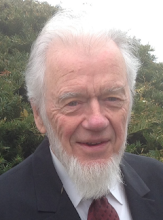There are several reasons why President Biden’s re-election as POTUS is uncertain despite the undesirability of his only real opponent. In this post, I am dealing with only one of those, which is the main reason some people, including some of my Thinking Friends, say they cannot vote for Biden.
 |
| Pres. Biden contemplating what to do about Gaza. |
Why
is Pres. Biden supporting Israel so strongly? This is a question many
people, especially younger people, in the U.S. are asking. And most of those
asking that question are quite critical of the President because of that
support.
In
contrast to Lord Tennyson’s well-known words, “Theirs not to reason why, / Theirs
but to do and die,” concerning Israel’s retaliation against Hamas and the U.S.
President’s support of that warfare, it is incumbent upon us to ask the reason
why—and to ask why so many Palestinians have had to die.
The
attack on Israel by Hamas on October 7, 2023, was an atrocious event, one not
unfairly compared with the September 11, 2001, attack on the U.S. True, the
deaths on 10/7 were around 40% of those on 9/11—but the population of Israel is
only about 3% that of the U.S.
Do
you remember the reaction of the U.S. government to those horrendous attacks on
9/11/01? On October 7 (in a remarkable coincidence of dates), the U.S.
officially launched Operation Enduring Freedom against Afghanistan.
In that
war which ended on August 30, 2021—an ending for which Biden has also often
been strongly criticized—at least 175,000 (and probably far more) people were
killed, including more than 46,000 civilians.
If
that is how the U.S. first responded to 9/11 even though the attackers were not
Afghans, it is not surprising that Israel responded with strong military action
against Gaza, where most of the Hamas terrorists lived.
Support
of Israel has been U.S. policy since 1948 when Israel became a nation, and
the U.S. under Pres. Truman was the first to recognize that new nation, and
this country has been Israel’s primary ally ever since.
Israel
has been the largest
cumulative recipient of U.S. foreign aid since its founding, receiving
about $300 billion (adjusted for inflation) in total economic and military
assistance.
What
else could Pres. Biden do but stand by an old ally? As I wrote in my blog post
on Dec. 21 last year,
I don’t think Biden’s position is any different from what any other President’s would be, including Hillary Clinton (who could well have been nearing the end of her seventh year as President if it had not been for her inexplicable loss in 2016).
Near Election Day in 2016 when I thought Clinton’s election was assured, I wrote “an open letter to Madame President.” Among other things, I implored her to ease up on her support for Israel in order to lessen the injustice being done to the Palestinians.
Pres.
Biden’s support of Israel has lessened over the months since last October, and his support for
humanitarian aid for Gaza has increased notably.
Four
weeks ago, Senator Schumer (D-N.Y.), the highest-ranking Jewish official in the
U.S. and a staunch ally of Israel, gave a powerful speech criticizing Prime
Minister Netanyahu and called for new elections in Israel, for if held now,
Netanyahu would most likely not be re-elected.
Pres.
Biden praised Schumer’s speech. In contrast, it was also widely reported that
leading Republican lawmakers were quite critical of it. U.S. House Speaker Mike Johnson (R-La.) said the U.S. needs to stand
with Israel and give its friend and ally its full support.
What would happen if Trump were President? Two weeks ago, Trump said he
would have responded the same way as Israel did after the Oct. 7 attack by
Hamas but urged the country to “finish up” its offensive in Gaza and
“get this over with.”*1
On that same day, “U.S. Rep. Tim Walberg, a
Republican from Michigan who used to serve as a Baptist pastor, suggested at a
town hall meeting during Holy Week that the Gaza Strip should be nuked.”*2
I certainly wish Pres. Biden—and the U.S.
government—had a far less supportive position toward Israel and a far greater
humanitarian position toward Gaza.
Hearing what Trump and the Republicans are saying, though, why would anyone think voting for them rather than Biden would be better for the Palestinians?*3
____________________________________________________________________
*1
This was widely reported in the news media; here is the link to
what the Associated Press wrote.
*2 Here is how my friend Brian Kaylor, president & editor-in-chief of Word&Way, continued, citing Walberg: “‘We shouldn’t be spending a dime on humanitarian aid,’ [Walberg] declared on March 25 after a constituent asked about the U.S. effort to build a port to deliver humanitarian aid to starving people in Gaza. ‘It should be like Nagasaki and Hiroshima. Get it over quick.’” (Word&Way is a Christian [Baptist] media company based in Missouri since 1896.)
*3 Please
note my contention in the
March 20 post that not voting or voting for a third party candidate, especially
in swing states, increases the likelihood that Trump will be re-elected.










